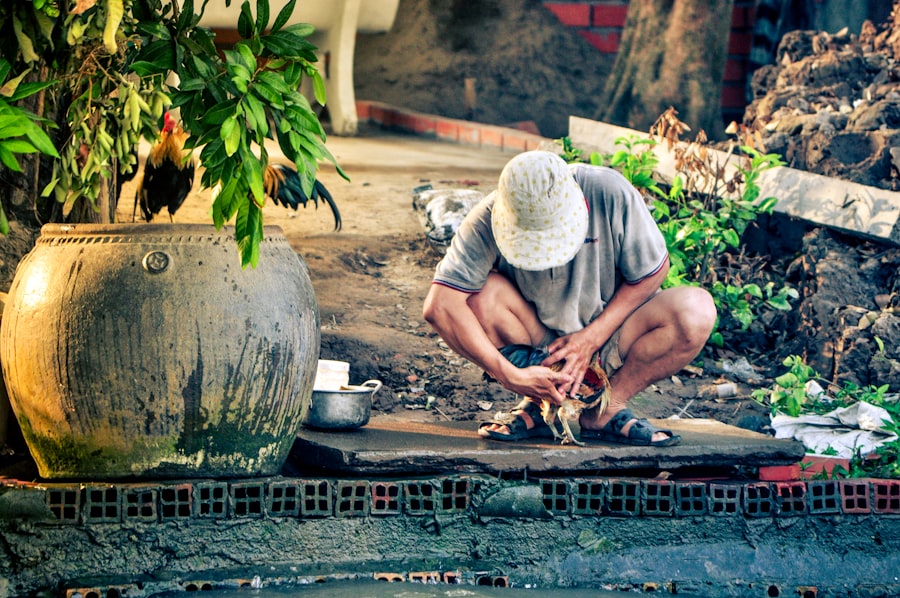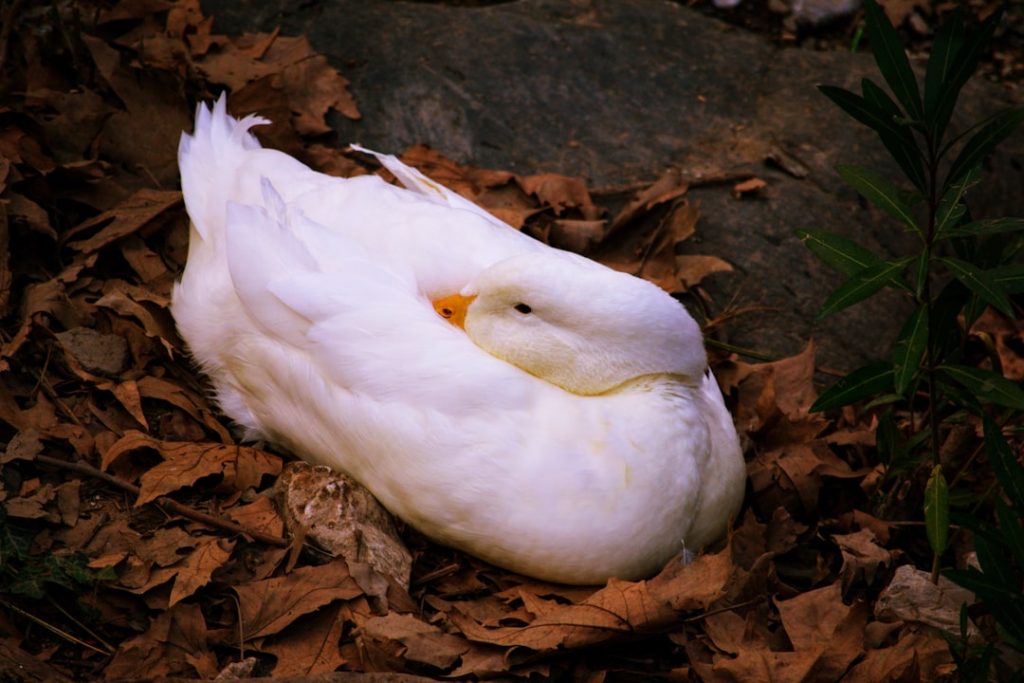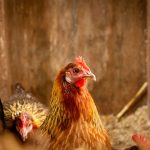Baby chickens, or chicks, are young poultry that require specific care and attention. Their behavior is characterized by curiosity and exploration, which manifests through pecking at various objects in their environment. This action serves as a learning mechanism and helps them understand their surroundings.
Chicks are inherently social animals and benefit from the company of other chicks. They often gather together for warmth and security, necessitating adequate space for movement and interaction. This social behavior is crucial for their overall well-being and development.
These young birds are also notably active and energetic. They exhibit a natural inclination to scratch and peck at the ground in search of insects and small organisms for food. This behavior is essential for their physical and mental health, and their living environment should accommodate these instinctive activities.
Understanding and accommodating these behavioral traits is vital in creating an appropriate habitat for baby chickens, ensuring their health and contentment. Proper care and attention to their natural behaviors contribute significantly to their growth and development.
Table of Contents
- 1 Choosing the Right Waterer for Baby Chickens
- 2 Placing the Waterer in the Right Location
- 3 Using Bedding and Litter to Absorb Moisture
- 4 Implementing a Regular Cleaning Schedule
- 5 Providing Distractions and Enrichment for Baby Chickens
- 6 Seeking Professional Advice if the Problem Persists
- 7 FAQs
- 7.1 What are some ways to keep baby chickens from pooping in water?
- 7.2 Why is it important to keep baby chickens from pooping in water?
- 7.3 What type of waterer is best for preventing baby chickens from pooping in water?
- 7.4 How can I raise the waterer off the ground to prevent baby chickens from pooping in water?
- 7.5 Where should I place the waterer to prevent baby chickens from pooping in water?
Key Takeaways
- Baby chickens are naturally curious and will peck at anything that catches their attention
- Choose a waterer that is easy to clean and refill, and is the right size for the number of chicks
- Place the waterer in a location that is easily accessible to the chicks, but away from their bedding to prevent contamination
- Use bedding and litter to absorb moisture and keep the chicks dry and comfortable
- Implement a regular cleaning schedule to maintain a healthy environment for the baby chickens
- Provide distractions and enrichment such as perches and toys to keep the chicks active and engaged
- Seek professional advice if the baby chickens show signs of illness or distress that persist despite your best efforts
Choosing the Right Waterer for Baby Chickens
Design and Size
First and foremost, it’s important to choose a waterer that is specifically designed for chicks. These waterers are typically smaller in size and have shallow troughs, making it easier for the chicks to access the water.
Ease of Maintenance
Additionally, it’s important to choose a waterer that is easy to clean and refill. Chicks can be messy, so having a waterer that is easy to maintain will make your life much easier.
Material Considerations
Another important factor to consider when choosing a waterer for baby chickens is the material it is made of. Plastic and metal waterers are both popular choices, but each has its own set of advantages and disadvantages. Plastic waterers are lightweight and easy to clean, but they can become brittle over time and may need to be replaced more frequently. On the other hand, metal waterers are durable and long-lasting, but they can be heavier and more difficult to clean.
Ultimately, the right waterer for your baby chickens will depend on your specific needs and preferences.
Placing the Waterer in the Right Location

Once you have chosen the right waterer for your baby chickens, it’s important to place it in the right location within their living space. The waterer should be easily accessible to the chicks, but it should also be placed away from their food and bedding to prevent contamination. Additionally, it’s important to keep the waterer at a consistent level to ensure that the chicks always have access to clean water.
Furthermore, it’s important to monitor the waterer regularly to ensure that it is functioning properly. Chicks can be messy, and their waterer can quickly become dirty or clogged with bedding or litter. By placing the waterer in the right location and monitoring it regularly, you can ensure that your baby chickens always have access to clean and fresh water.
Using Bedding and Litter to Absorb Moisture
Bedding and litter play a crucial role in keeping your baby chickens’ living space clean and comfortable. Not only do they provide a soft and comfortable surface for the chicks to walk on, but they also help absorb moisture and control odors. When choosing bedding and litter for your baby chickens, it’s important to consider their specific needs.
Pine shavings are a popular choice for bedding as they are absorbent and help control odors. Additionally, straw or hay can also be used as bedding, providing a soft and comfortable surface for the chicks. It’s important to regularly clean and replace the bedding and litter in your baby chickens’ living space to ensure that it remains clean and hygienic.
Wet or soiled bedding should be removed promptly to prevent the growth of bacteria and mold, which can be harmful to the chicks’ health. By using suitable bedding and litter and maintaining a regular cleaning schedule, you can create a clean and comfortable environment for your baby chickens.
Implementing a Regular Cleaning Schedule
Maintaining a regular cleaning schedule is essential for keeping your baby chickens’ living space clean and hygienic. Chicks can be messy creatures, and their living space can quickly become dirty if not properly maintained. It’s important to remove any wet or soiled bedding regularly and replace it with fresh, clean bedding.
Additionally, the waterer should be cleaned and refilled daily to ensure that the chicks always have access to clean water. Furthermore, it’s important to thoroughly clean the entire living space on a regular basis. This includes removing any droppings or spilled food, as well as disinfecting the area to prevent the growth of bacteria and parasites.
By implementing a regular cleaning schedule, you can ensure that your baby chickens’ living space remains clean and hygienic, promoting their health and well-being.
Providing Distractions and Enrichment for Baby Chickens

Providing Distractions and Enrichment
There are several ways to provide distractions and enrichment for baby chickens, such as hanging mirrors or shiny objects in their living space for them to peck at or providing them with toys or objects to explore.
Outdoor Enrichment Opportunities
Additionally, allowing the chicks access to an outdoor area where they can scratch and peck at the ground can provide them with valuable enrichment opportunities. This natural behavior allows them to engage in activities that are essential for their physical and mental well-being.
Benefits of Distractions and Enrichment
By providing distractions and enrichment for your baby chickens, you can help keep them happy, healthy, and mentally stimulated.
Seeking Professional Advice if the Problem Persists
If you find that your baby chickens are exhibiting unusual behavior or are experiencing health issues despite your best efforts, it may be time to seek professional advice. A veterinarian or experienced poultry expert can provide valuable insight into the specific needs of baby chickens and offer guidance on how to address any issues you may be experiencing. Additionally, joining online forums or local poultry groups can provide you with access to a community of experienced chicken owners who can offer advice and support.
By seeking professional advice if the problem persists, you can ensure that your baby chickens receive the care and attention they need to thrive. In conclusion, understanding the behavior of baby chickens is crucial in providing them with a healthy and comfortable environment. Choosing the right waterer for baby chickens involves considering factors such as size, material, and ease of maintenance.
Placing the waterer in the right location within their living space is essential for ensuring that the chicks always have access to clean water. Using suitable bedding and litter helps absorb moisture and control odors in their living space. Implementing a regular cleaning schedule is essential for maintaining a clean and hygienic environment for baby chickens.
Providing distractions and enrichment activities can help prevent boredom and reduce stress for baby chickens. Seeking professional advice if problems persist ensures that your baby chickens receive the care they need to thrive.
If you’re looking for more tips on keeping chickens, you might be interested in this article on how to build a chicken coop nest box. It’s important to provide a clean and comfortable environment for your chickens to prevent them from pooping in their water.
FAQs
What are some ways to keep baby chickens from pooping in water?
Some ways to keep baby chickens from pooping in water include using a poultry waterer with a narrow opening, raising the waterer off the ground, and placing the waterer in a location away from their sleeping and feeding areas.
Why is it important to keep baby chickens from pooping in water?
It is important to keep baby chickens from pooping in water because their feces can contaminate the water, leading to the spread of diseases and bacteria. Clean water is essential for the health and well-being of baby chickens.
What type of waterer is best for preventing baby chickens from pooping in water?
A poultry waterer with a narrow opening, such as a nipple waterer or a small cup waterer, is best for preventing baby chickens from pooping in water. These types of waterers make it more difficult for the chickens to contaminate the water with their feces.
How can I raise the waterer off the ground to prevent baby chickens from pooping in water?
You can raise the waterer off the ground by placing it on a platform or stand that is tall enough to prevent the chickens from perching on it and pooping in the water. This will help keep the water clean and free from contamination.
Where should I place the waterer to prevent baby chickens from pooping in water?
Place the waterer in a location away from the baby chickens’ sleeping and feeding areas. This will help minimize the chances of the water becoming contaminated with their feces.
Meet Walter, the feathered-friend fanatic of Florida! Nestled in the sunshine state, Walter struts through life with his feathered companions, clucking his way to happiness. With a coop that’s fancier than a five-star hotel, he’s the Don Juan of the chicken world. When he’s not teaching his hens to do the cha-cha, you’ll find him in a heated debate with his prized rooster, Sir Clucks-a-Lot. Walter’s poultry passion is no yolk; he’s the sunny-side-up guy you never knew you needed in your flock of friends!







